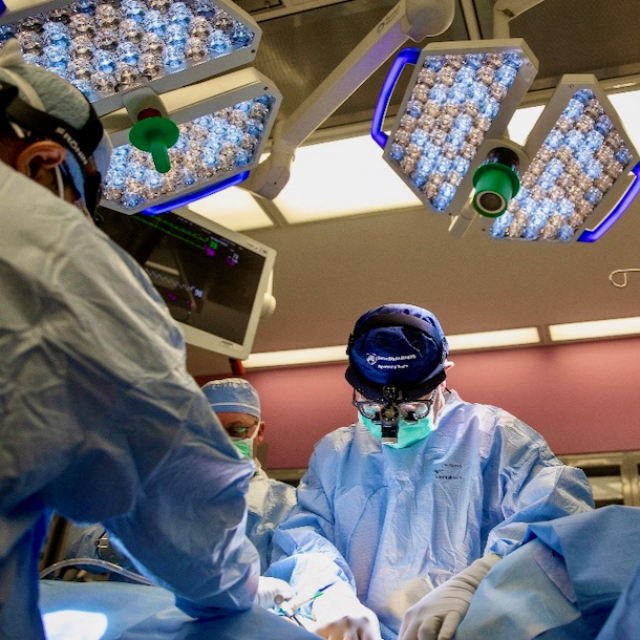Oct 29, 2024
Penn State’s Neurosciences Biorepository expands access to University Park
The Neuroscience Biorepository, a collection of specimens and data housed at the Penn State College of Medicine, will be expanding its availability to researchers at University Park.

The Penn State Neuroscience Biorepository, an integrated specimen bank and clinical database, was established in 2016 at Penn State’s College of Medicine in Hershey, PA. Since that time, the Biorepository has collected more than 1,000 biological samples from consenting patients undergoing surgical procedures at the Milton S. Hershey Medical Center. Until very recently, the facility has rarely been used by researchers at the University Park campus.
The Biorepository’s purpose is to facilitate basic science, clinical research and translational studies. The facility gives researchers the ability to obtain and study human specimens using a dynamic collection, storage, annotation, and distribution service. Relevant associated demographic, clinical, and outcome data are stored in a REDCapTM database, and specimens are available for use by investigators through a specific protocol approval process.
Nikki Crowley, director of the Penn State Neuroscience Institute, collaborated with Dr. Kevin Cockroft, Dr. Brad Zacharia, and the administrative team at the Penn State College of Medicine to expand the reach of this resource to University Park.
“I am excited to facilitate the opportunity for our basic scientists in neuroscience, but also other disciplines of biology, to collaborate with our clinicians and neurosurgeons to extend our understanding of the human brain,” said Crowley. “There are truly so few places in the United States where you can access tissue like this, and I’m proud that Penn State is one of them.”
Four distinct types of biological samples are collected on diverse patient populations under neurosurgery, neuro-oncology, and neurology care: tissue, cerebral spinal fluid (CSF), blood, and buccal swab samples.
“The Penn State Neuroscience Biorepository is truly a unique resource and is one of the strongest and most comprehensive in the nation. The generosity and selflessness of our patients in donating their biospecimens to the betterment of science leaves us in awe,” said Brad Zacharia, associate professor of neurosurgery and otolaryngology. “Since its inception, the Biorepository has been leveraged to pursue cutting edge research in the understanding, diagnostics, and treatment of a wide array of neurological disorders.”
At University Park, this expanded access to the Biorepository will enhance Penn State scientists’ pursuit of both basic and translational neuroscience research.
“The Biorepository is going to make it possible to take discoveries from basic research, often conducted in model organisms, and confirm they apply to human conditions," said Crowley. "Being able to bridge these levels of science is really difficult, and it’s amazing that we can do it with resources exclusively at Penn State."
Increased access to this patient data will also allow for opportunities to enhance interdisciplinary research as well as cross-campus collaborations at Penn State. According to Crowley, the opportunity to work with brain and other tissue samples is useful for many disciplines, ranging from basic biology and chemistry to those studying environmental and sociobiological phenomena.
“This novel neural tissue biorepository highlights the dynamic interplay between scientific discovery and clinical practice and will provide the basis for future studies which will improve human health,” said Karen E. Kim, Dean of the Penn State College of Medicine.